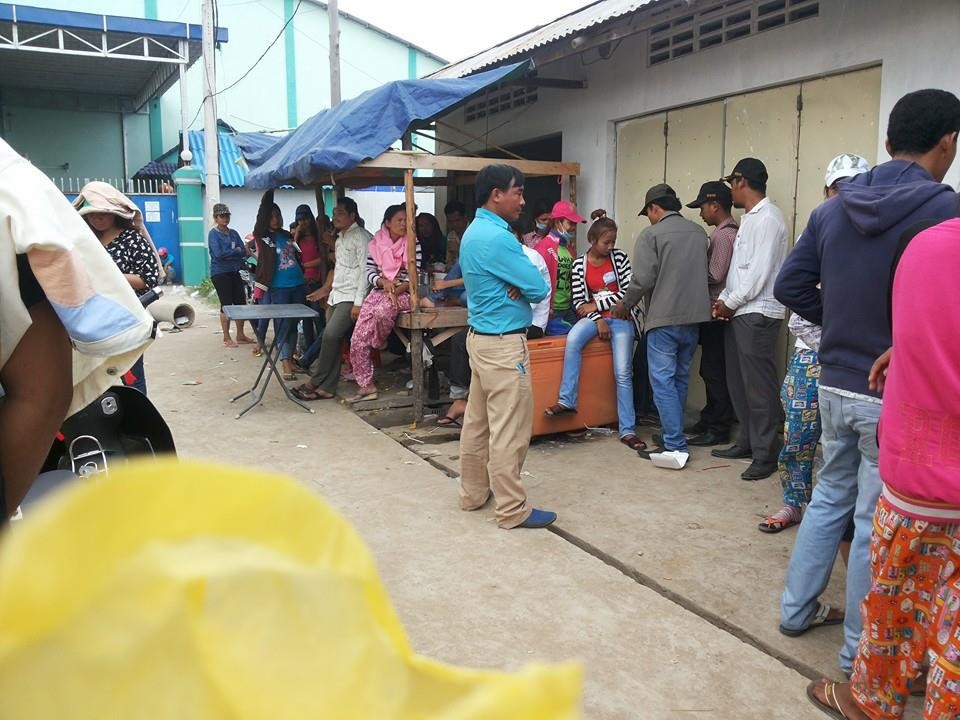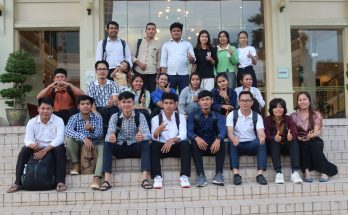April 28 is World Day for Safety and Health at Work, an international day of remembrance and action for workers killed, disabled, or injured in the line of work. In Cambodia, the health and safety of workers is particularly at stake in the garment sector, where workers earn meager wages despite long hours and overtime, resulting in health and safety problems ranging from rampant malnutrition to mass fainting incidents. Despite widespread media coverage of Cambodia’s garment sector, the voices of the workers are largely lost in the political rhetoric.
To give a voice to garment workers’ concerns on health, security and safety (HSS), the Cambodian Center for Independent Media (CCIM) recently launched a project, “Giving A Voice to Cambodian Garment Workers.” The goal of the project is to take female garment workers and transform them into citizen journalists, training them on basic news reporting and security measures, while equipping them with technology to aid in their reporting. The results have been remarkable, with these citizen journalists filing daily reports with CCIM’s VOD (Voice of Democracy) news outlet about HSS risks that they face in their factories and at home. Some of their reports have already been aired on CCIM’s Sarika FM radio station (106.5 FM in Phnom Penh and 95.5 FM in Siem Reap) and posted to VODhotnews.com.
“Garment workers play crucial role in boosting Cambodia’s economy, and yet we continue to see mass faintings and factory collapses, not to mention strikes and demonstrations,” said CCIM Executive Director Pa Nguon Teang. ”By giving these workers a voice, we are empowering them to raise their concerns about their working and living conditions and to fully participate in Cambodian society.”
Photos and reports submitted by garment worker citizen journalists so far have clearly demonstrated the HSS risks workers face every day — from empty First Aid kits and unmaintained fire equipment at their factories to the precarious means of transportation they employ to get to and from work. See several citizen journalists’ photos attached.
Funded by Rosa Luxemburg Stiftung, with support from ActionAid Cambodia, the nine- month project will produce a network of garment worker citizen journalists, whose reports will be featured in VOD’s breaking news coverage, radio features, investigative videos, roundtable debates, and radio dramas.
Media Attachments
 (Right picture) Workers go on strike at a Phnom Penh factory in this photo taken by a CCIM garment worker citizen journalist on April 24, 2014.
(Right picture) Workers go on strike at a Phnom Penh factory in this photo taken by a CCIM garment worker citizen journalist on April 24, 2014.
(Left picture) A Phnom Penh factory’s First Aid medical kit is left without supplies — a clear health and safety violation. Photo by a CCIM garment citizen journalist. April 23, 2014.

(Right picture) Basic safety equipment like this fire extinguisher is not well maintained at this Phnom Penh factory, posing a risk to workers. Photo by a CCIM garment citizen journalist. April 12, 2014.

(Left picture) A rush of workers completing their overtime shift employ unsafe means of transportation to travel home. Photo by a garment citizen journalist. April 9, 2014.

(Right picture) This photo by a garment citizen journalist reflects her support of a minimum wage increase to $160 USD per month. April 9, 2014.

(Left picture) Garment workers face health and safety issues outside the workplace as well, where malnutrition is rampant and hygiene standards for street vendors selling them food are low. Many factories have little or no dedicated space for workers to eat during their short lunch breaks. Photo by a garment citizen journalist. April 7, 2014.

(Right picture) This worker continues his shift despite an injury. Workplace injuries are common in Cambodia’s garment industry, where health and safety standards are lacking. Photo by a garment citizen journalist. April 4, 2014.




